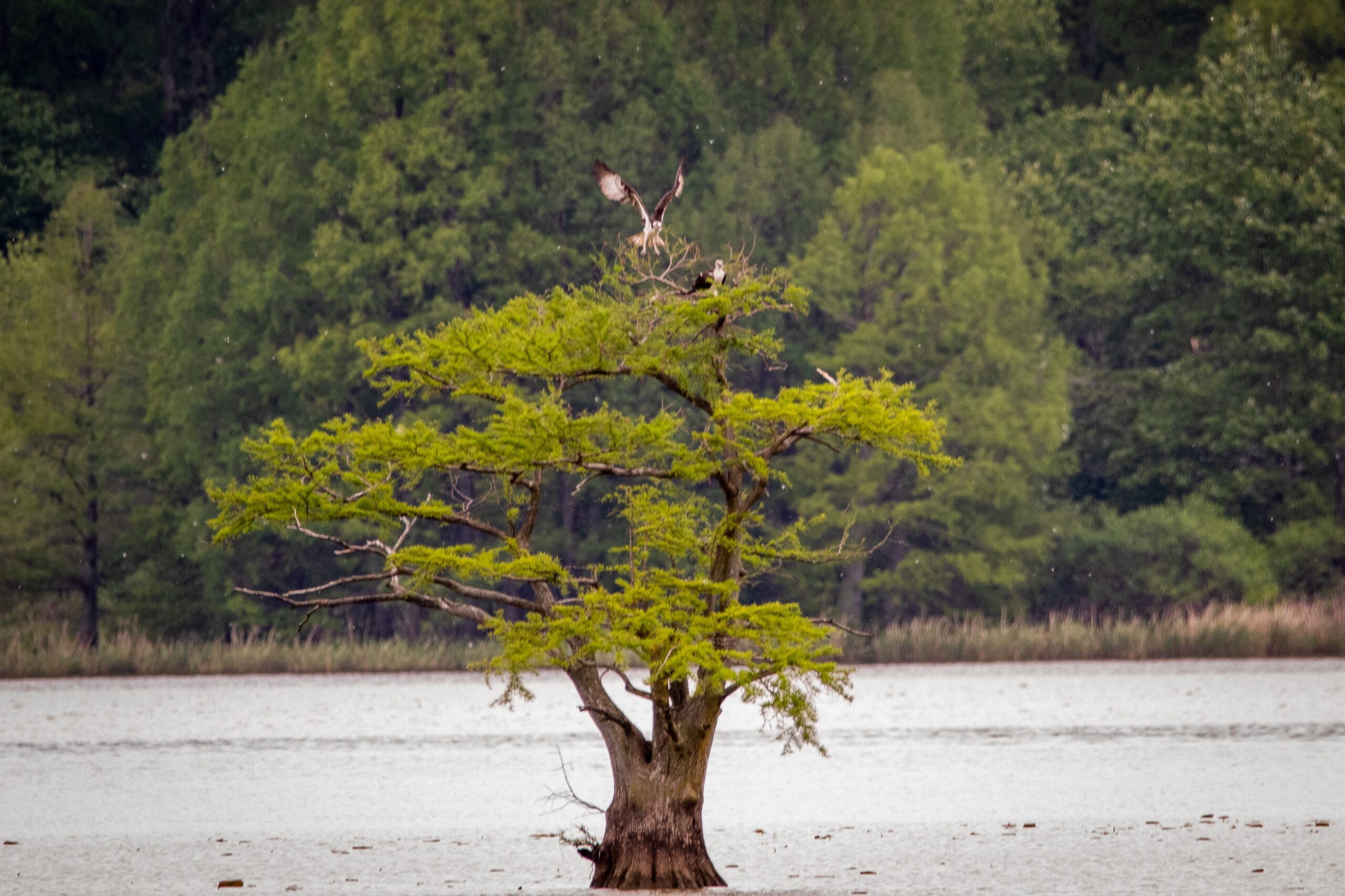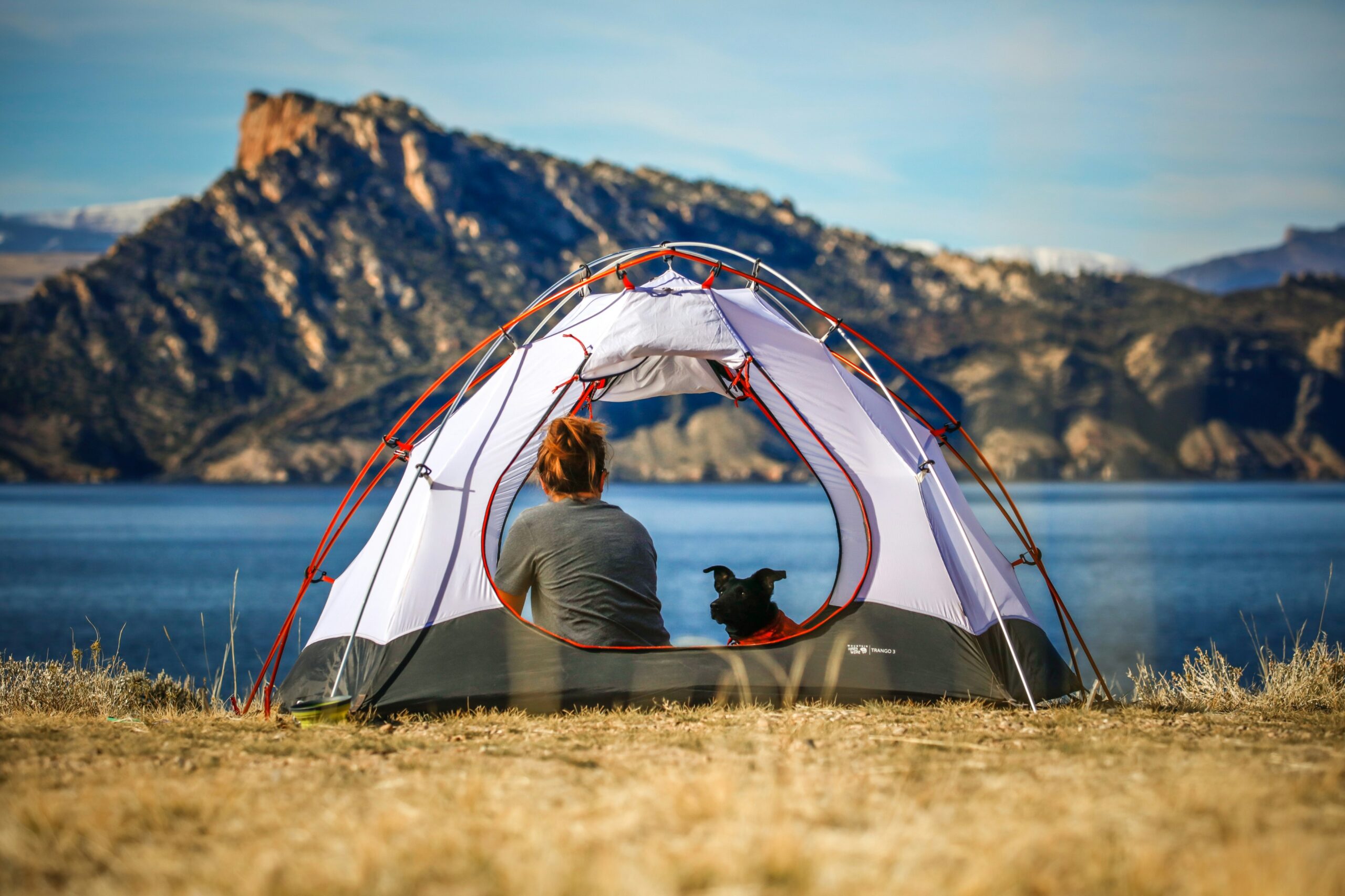At a lakeside property, wildlife sightings are part of the charm, but some creatures are best admired from afar. Without proper precautions, you might find bird nests in your chimneys, otters in your boathouse, and bears at your picnics. This article provides guidelines for property owners and renters to ensure a safe and uninterrupted lakeside experience, avoiding the need for pest control interventions.
For Property Owners
Property Selection
When choosing and maintaining a lakeside property, it’s crucial to research the native animals and plants, focusing on pests, predators, and toxic vegetation. Consulting with neighboring property owners and local conservation groups can provide valuable insights into specific wildlife patterns and prevalent species in the area.
Avoiding Invasive Species, Big and Small
Wildlife considerations might influence your property purchase. For instance, in Ontario, you can reduce bear encounters by selecting locations further south. Familiarize yourself with lakes such as Lake Muskoka, Kawartha, Lake Simcoe, and the Great Lakes to avoid invasive species like sea lampreys. Understanding the local wildlife helps in mitigating risks and simplifying maintenance procedures.
Making Your Yard Wildlife Friendly
How do I make my yard wildlife-friendly?
- Provide water: Whether it’s winter, summer, or somewhere in between, wild animals need reliable sources of fresh water.
- Offer natural food sources: Plant a variety of native plants.
- Skip the lawn chemicals: Avoid using pesticides and herbicides.
- Make your windows bird-safe: Use decals or other methods to prevent bird collisions.
- Shrink your lawn a little: Replace some lawn with native plants.
- Build a brush pile: Create habitat for small mammals and insects.
- Be a friend to bees: Plant bee-friendly flowers.
- Put up a bat house: Provide shelter for bats.
Property Modification
Once you select a property to purchase, you’ll want to either build a structure with measures to deter wildlife from coming or update the outbuildings and other structures you already have on the property.
Property Modifications
To keep animals out, you’ll want a fence or wall around the boundaries of your property. If you already have a barrier, assess it for damage and repair any damage found. You might want to consider electric fencing if large animals like deer bypass your fence frequently or put a scent deterrent around the property.
For lakefront properties, you may have a large portion protected by the shoreline, a natural barrier. That said, it may welcome other unwanted guests, such as otters and geese, who make quite a mess – and yes, I speak from experience.
Motion Detection Lights to Scare Away Prey
To scare away animals, both arriving from land and in the water, you should also put up motion-detecting cameras, lights, and sprinklers to record and deter wildlife, mainly nocturnal wildlife.
Installing Chimney Caps and Vent Covers
Installing chimney caps and vent covers will also ensure fewer points of entry or areas for pests to enter the house. Chimney caps keep birds from nesting in chimneys, and vent covers prevent mice and other pests from entering the house.
Repair Damage To Eliminate Entry Points
Consulting a pest control expert lets you determine where to reinforce the building. As you would repair your fencing or exterior walls, also fix the walls and foundations of your buildings.
Repair any interior damage, and check that doors and windows have firm seals that prevent insects from entering through the cracks. Ensure that areas, where food is stored are free of damage, as food invites wildlife, and any gaps will allow pests access to it.
Environmental Outdoor Modifications
If you have outdoor food or waste, you’ll want to take additional measures to prevent wildlife from finding your area attractive.
Store garbage, compost, and recycling in a secure manner. If you live in an area with bears, purchase a bear bin or share one with a neighbor. Keep bird feeders off the ground, and consider fencing, covering, or netting any gardens with crops in them.
You might also want to raise your garden beds so rabbits and other creatures can’t climb. Clear any brush piles, wood piles, or debris piles on your property to discourage rodents and other wildlife from moving in, and stack your wood neatly in a woodshed.
To minimize mosquitoes and other pests that breed in water, reduce the amount of stagnant water on your property. Check and clean gutters regularly to prevent them from getting clogged with debris, and ensure you either cover or have proper drainage for outdoor containers like sandboxes and water fixtures. You might also want your property sprayed for pests like mosquitoes.
How To Keep Animals Out of Garden
You can deter wildlife from your property with how and what you plant. Hedges are an alternative to fencing, and hedging with plants that have needles or thorns on them can deter animals from trying to break through the barrier or nest in it. Some native plants also prevent deer and other animals from eating or approaching them and should be planted as they are less appealing to herbivores in your area.
Keeping Wildlife Out of Your Yard
What keeps the wildlife out of your yard?
Erect a barrier to protect your yard or individual plants from foraging wildlife. A piece of netting or chicken wire around, or a wire cloche over, vulnerable plants can provide effective protection against rabbits, deer, groundhogs, and squirrels.
Protecting Your Shed
Dig a trench near the opening of your shed and put in a wire mesh or hardware cloth to cover the area. Bend the bottom to prevent animals from plowing under the cloth. Place the mesh inside the trench, then fill it in with soil. Attach the top of the mesh to the bottom of your shed.
Using Mulch to Repel Animals
Mulches such as straw, wood chips, and leaves offer mice and their relatives safety and cover. While many growers use these resources to prevent weed growth or to regulate moisture, the mulch also provides protection for undesirable rodents.
If wildlife such as coyotes, deer, or foxes appear in your yard, give them space. When met by people, most wild animals will either escape the imminent danger humans pose or hunker down to hide until the coast is clear for them to leave.
Maintenance
Tidy up any debris, clean the gutters, limit overgrowth, inspect your structures, keep your buildings and outdoor cooking areas tidy, bring in any food and beverages inside, harvest crops as soon as they are ready, clean fallen fruit from fruit trees, and weed your property. This will minimize your property’s attractiveness to wildlife.
Regulations and Resources
Consult local authorities and wildlife laws, and stay current on any regulations relevant to how you interact with wildlife and conduct activities on your property. In some areas, it might be legal to hire a trapper to remove pests that could damage trees your structures, or otherwise be a threat to your wellbeing.
Once you have learned about the wildlife in your area, you can also tell those renting your property about the wildlife, your rules (be they on food, waste, or activities), and why it is essential to follow them.
If wildlife bothers you or your renters, let wildlife management authorities know so they can investigate nuisances, especially those by more giant animals like deer and bears. Doing so will minimize the damage done to your guests’ experiences, your property, and the wildlife around you.
For Renters
For renters, keeping wildlife at bay is much simpler but just as important. Leave everything as the property owner has it, not modifying any plants or damaging any structures.
Clean outdoor cooking areas like fire pits or barbecues, and bring in any garbage, food (human or pet food), and personal items before nightfall. Follow any rules the host sets, legal regulations, and conservation guidelines.
If you have a boat, clean it before putting it in another lake to prevent invasive species from being introduced into new habitats.
Only get close to wildlife and feed animals if the owner has permitted you to, such as birds with a bird feeder. Do your best to leave no trace and report any issues as they arise to the property owner and, if needed, wildlife authorities.
How To Scare Away an Animal
Make noise and act aggressively by stomping your feet, throwing something, or using bear spray. Pick up small children and pets immediately. Do anything you can to make yourself look bigger. Do not run, turn your back on the animal, or play dead. Back away slowly.
Keeping wildlife at bay ensures that people and animals can enjoy the great outdoors, with neither one interfering in the other’s affairs. By following these guidelines, you can enjoy your lakeside property safely and peacefully.
Frequently Asked Questions
Animals and Your Yard
What smell do wild animals hate?
Castor, peppermint, and spearmint oils are odors that digging and burrowing animals dislike. This can include groundhogs, mice, moles, rats, skunks, voles, and others.
What repels raccoons and possums?
Ordinary fencing will not keep skunks, raccoons, and opossums out of gardens or poultry lots. These animals can be repelled by adding a single electrified wire strand to an existing fence, using a standard electric fence unit.
What repels skunks and raccoons?
Place orange and lemon peels near den entries/exits. Skunks do not like citrus. Spray grass with vegetable oil, raccoons and skunks do not like to get their coats oily. Spray a cayenne pepper/water or chili powder/water mixture all around the den area.
How do you keep wild animals away from your house?
Prevent critter thievery by installing fencing around any vegetables, fruit plants, and water sources in your garden. Trim back your trees and install gutter guards to close off access to your roof. Use trash cans with tight-fitting lids and store them inside your garage.
How to get rid of backyard critters?
Fencing is the best way to keep most critters out of your garden. Put up a fence from day one to prevent animals from finding a food source in your yard. For rabbits, install a fence with a minimum height of 18 inches with one-inch openings, such as inexpensive chicken wire.
What attracts animals to your yard?
A basic tenet of attracting wildlife is diversity. Maximize the number of plant species in your yard. Favor a mixture of plants with varying timing of blooms and fruit, height and structure. Intersperse wildlife-friendly trees with other habitat components like shrubs, wildflowers, vines, and water sources.
Scaring Away Wild Animals
What scares wild animals away?
The most effective deterrence for any wild animal is human presence. Loud noises, bright lights, and hoses are excellent methods for deterrence because they keep humans at a safe distance but still scare the animals off.
Will wind chimes keep animals away?
Loud noises such as banging pots and pans, playing loud music, or placing wind chimes can startle rodents and encourage them to stay away from your property. Additionally, high-pitched noises like ultrasonic pest repellers can also be effective in deterring rodents.
Does yelling scare wild animals?
Yell or clap loudly to scare wildlife away; carry something with you to make noise, such as an air horn or something to throw, like a rock or baseball. In the long run, it’s much safer for us, our pets, and the wildlife if they remain fearful of humans.
What plant keeps animals away?
Herbs like peppermint, lavender, thyme, and oregano smell delicious to gardeners but will deter animals.
Specific Animal Repellents
What is the best natural animal repellent?
Essential oils of lavender, mint, pyrethrum, geranium, and paste of garlic can be sprinkled or sprayed around plant bases to keep problem animals at bay. Planting geranium, rue, basil, sage, pyrethrum, garlic, and onions near doorways can discourage insects and rodents from entering the house.
How do you get rid of raccoons fast?
Install motion-activated lights and sprinklers. Set up a battery-operated radio tuned to an all-night talk show and turn it on for a few nights to drive raccoons away. Remove any wood that was used for a den and burn it outside to destroy roundworm eggs. Keep ponds at least 3 feet deep.
What scent will keep raccoons away?
Since raccoons have a strong sense of smell, use scents they hate such as hot pepper, garlic, peppermint oil, onion, and Epsom salt.
What to spray on garbage bags to keep animals away?
Spray bleach, ammonia, or vinegar to mask the smell of rotting food and garbage. This will repel raccoons, cats, squirrels, and rodents.
Does vinegar keep animals away?
Vinegar can keep animals out of your yard. Deer and other animals, including cats, dogs, rabbits, foxes, and raccoons, don’t like the scent of vinegar even after it has dried.
What keeps stray animals away?
Propel water. Water propelled from a cup, pitcher, hose, or toy water gun can dissuade animals from visiting. Even if the water doesn’t make contact with the animal, the motions involved and the water landing nearby will send the message that they are not welcome.




